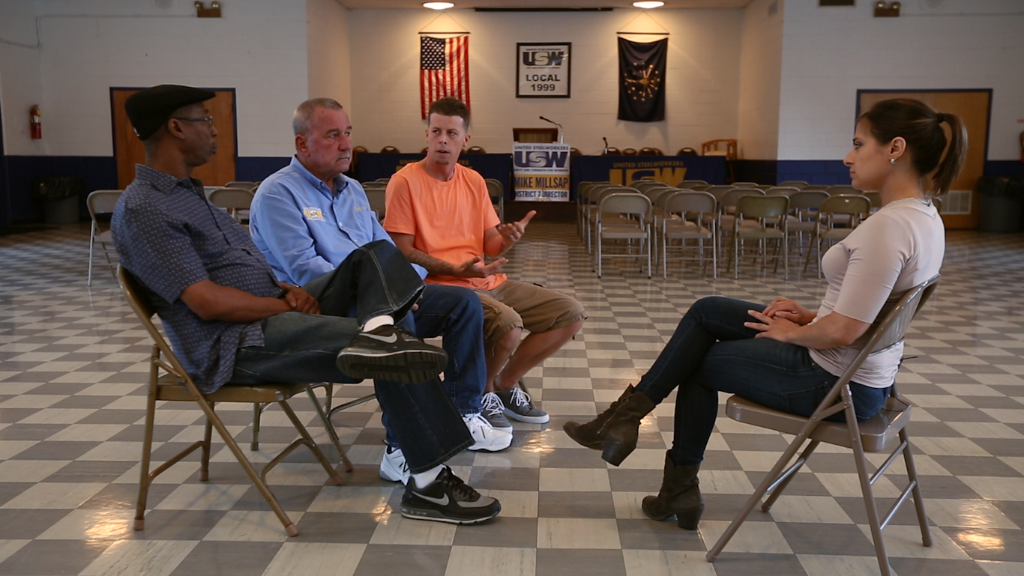
It's a case of unrequited love between Donald Trump and Indiana's blue collar workers.
Trump says by getting tough on trade he could save American jobs at the Carrier manufacturing plant in Indianapolis. The company is known for manufacturing air conditioners, but it announced in February it would be moving its furnace operations to Mexico by 2018.
"Here's what's going to happen," Trump told a crowd in Indianapolis this April. "I'll get a call from the head of Carrier and he'll say, 'Mr. President, we've decided to stay in the United States. That's what's going to happen -- 100%."
But the furnace workers aren't convinced. TJ Bray, a worker at the Carrier plant for 14 years, isn't buying it, especially given Trump's own record of making products overseas.
"We believe he's opportunistic and says what everybody wants to hear," Bray told CNNMoney's Cristina Alesci. "How can you sit there and say, 'I'm against these trade deals, I'm all this,' when you make your own things in cheap countries?"
On a national level, the United Steelworkers' union have endorsed Hillary Clinton. Chuck Jones, president of the local unit in Indianapolis, said he'd "hold his nose" and probably vote for her as well. He believes many of his members will too.
"It's good to hear," Jones says of Trump's promises, "but it probably ain't reality."
Related: America's top 10 job-killing companies
And they feel the same about Trump's running mate, Indiana Governor Mike Pence and his response to the Carrier announcement. "As a governor, he did nothing." Jones said.
Trump has said he'd renegotiate trade deals like NAFTA and be stricter about enforcing existing rules.
Around one-third of American manufacturing jobs have been lost since the turn of the century. But trade deals like NAFTA are only part of the cause.
Technological advances in U.S. manufacturing cost some of those jobs. And it was inevitable that big U.S. multinationals would seek out cheap labor in other countries.
Plus, NAFTA has supported some American jobs by opening up opportunities in Mexico and Canada.
Carol Rogers, a business researcher at the University of Indiana, says NAFTA partners Mexico and Canada are two of Indiana's biggest customers, with exports making up more than 10% of Indiana's economy.
Cummins, another manufacturer employing around 10,000 people in Indiana, agrees.
"I'm not sure Americans understand how much international business is actually an important part of American businesses being successful," said Jennifer Rumsey, Cummins' Chief Technical Officer.
Darren Wildman, the manager at Cummins' Seymour plant, adds that American consumers benefit from lower prices.
Many of Carrier's competitors have also opened factories outside the U.S., including Lennox and Nortek.
Carrier says it is giving workers plenty of time to make the adjustment. In a statement to CNNMoney, the company said, "We must continue to protect our business in a relentlessly competitive global marketplace." The company is offering technical training programs to prepare workers for new jobs.
Still, for Bray and Jones, the company's decision is a financial blow Trump can't solve.
"If [Trump's] so big on Carrier, where's he at?" Bray says. "He's got the money, he can buy this plant, he can give them $65 million, but he's not doing that."
While they're not necessarily voting for Hillary, they say they definitely won't be voting for Trump.
"We have to vote for our jobs," Jones says.
-- Cristina Alesci contributed to this report

